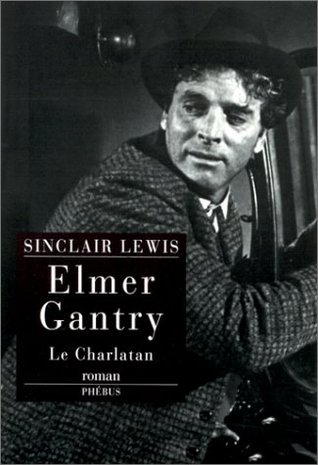TL;DR
Elmer Gantry by Sinclair Lewis is a provocative satire that explores the hypocrisy of a charismatic preacher who indulges in vice while preaching morality, reflecting the grotesque vulgarity of 1920s American religious culture.
What is Elmer Gantry about
Set in the 1920s, Elmer Gantry follows the titular character, a silver-tongued evangelist whose life is a juxtaposition of piety and hedonism. The novel critiques the American religious landscape, exposing the moral duplicity of its leaders. As Gantry rises within his church, his personal life is filled with vice, challenging the sincerity of his preaching and the ethics of the society around him. Upon its release in 1927, the book sparked outrage, leading to bans and calls for Lewis's imprisonment, showcasing the sensitivity of the era towards critique of religious figures and institutions.
Elmer Gantry 7 Key Takeaways
Introduction of Elmer Gantry
Elmer Gantry is introduced as a charming and ambitious young man with dreams of becoming an influential preacher, showcasing his charisma and early ambition.
Gantry's rise in the church
Gantry's talent for oratory and manipulation allows him to ascend rapidly within the Methodist church, where he becomes a leading figure despite his personal vices.
Conflict with morality
As Gantry preaches against sin, he struggles with his own desires and temptations, leading to a life of hypocrisy that becomes increasingly difficult to maintain.
Romantic entanglements
Throughout the story, Gantry engages in numerous affairs, including with a fellow preacher, highlighting the contradictions between his public persona and private behavior.
Public scandal and fall from grace
Gantry faces public scrutiny and scandal as his duplicity is exposed, causing him to confront the consequences of his actions.
Gantry's eventual success
Despite the turmoil, Gantry ultimately secures a position as a prominent minister, symbolizing the persistent nature of hypocrisy in religious leadership.
Conclusion of Gantry's journey
The novel ends with Gantry continuing his life as a minister while indulging in the very vices he preaches against, encapsulating the enduring theme of moral conflict.
Top Elmer Gantry Quotes
- "He was a man who had not quite realized that he was not a man of God, but a man who used the idea of God to achieve his own ends."
- "The preacher was not a man who believed in God, but in the power of the pulpit and the money it could bring."
- "The truly dangerous man is not the one who denies faith, but the one who exploits it for selfish gain."
Who should read Elmer Gantry?
Elmer Gantry is essential reading for those interested in American literature, religious studies, and social critique. Readers will gain insights into the complexities of faith, morality, and the human condition, as well as the historical context of the 1920s that shaped these discussions.
Elmer Gantry Best Reviews
- "Sinclair Lewis's Elmer Gantry is a sharp, satirical examination of hypocrisy that resonates deeply with contemporary readers, revealing the stark contrast between public personas and personal truths." - The New York Times
- "A landmark work that fearlessly critiques the religious fervor of its time, Elmer Gantry remains a powerful commentary on the human condition and the nature of belief." - The Atlantic
People also liked these summaries
Elmer Gantry FAQs
What themes does Elmer Gantry explore?
Elmer Gantry explores themes of hypocrisy, the duality of human nature, and the complexities of faith and morality, particularly in the context of American religious practices.
Why was Elmer Gantry banned in some cities?
The novel was seen as a scandalous critique of religious figures and practices at the time, leading to outrage among certain communities and calls for its ban.
Does Elmer Gantry reflect any real-life figures?
While Lewis claims that the characters are fictional, many elements of the story are influenced by real-life evangelists of the time, such as Billy Sunday and Aimee Semple McPherson.
